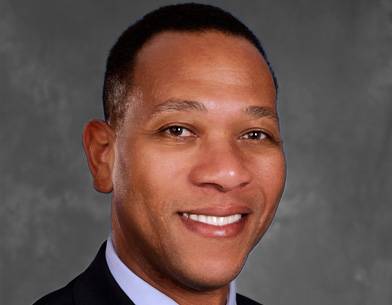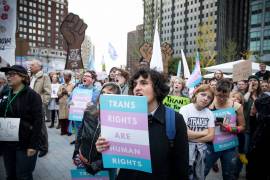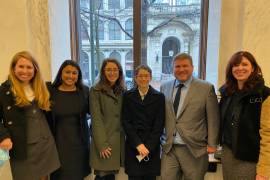
From Sex to Marriage: Texas Then and Now
Blog Search
In the blog series From Sex to Marriage: How We Got From Lawrence v. Texas to the Cases Against DOMA and Prop 8, we ask key players in Lambda Legal’s biggest victory to discuss the importance of the landmark case, and its impact on the marriage cases currently before the Supreme Court.
In the previous installments:
- Lambda Legal Executive Director Kevin M. Cathcart introduces the series and the guest bloggers.
- Attorney Mitchell Katine recalls receiving the phone call that set the Lawrence case in motion.
- Ruth Harlow, former Legal Director for Lambda Legal, discusses our legal strategy on Lawrence.
Lambda Legal: How would you describe the LGBT community in Texas 10 years ago, at the time of Lawrence?
Roger Poindexter: While the answer to that question differs from city to city, I would say individuals at that time who identified as LGBT had already figured out how to live their lives. They were either totally out to everyone, or they had a select group of individuals that they considered friends, who knew their sexual orientation. Based on their level of comfort, there were some in the community who were totally out at work, but most were selective about sharing their sexual orientation with individuals in the office.
If you wanted to be around other LGBT individuals, you either hosted friends in your home, visited friends in their homes or you went to the gay area of town, where you could feel comfortable being yourself. Most felt comfortable doing anything they wanted in the privacy of their own home and few realized the significance of Texas Penal Code 21.06, the Homosexual Conduct Statute.
LL: How did that law affect the community and the movement?
RP: Well, in the most obvious sense, the Texas statute meant that you were considered a criminal simply for being who you are and living your life. At the time of the ruling, I believe those involved in the LGBT community really had no idea of the huge impact the ruling would have on their life and on the future of the LGBT movement. There was no radical change for the average individual—except, of course, you were no longer considered a criminal.
For the movement, the ruling was a cause for celebration. It happened to coincide with Gay Pride celebrations around the country. And, looking back, the movement has seen significant advances, with marriage being recognized in nine states and the District of Columbia, “Don’t Ask, Don’t Tell” being repealed, the Supreme Court soon hearing two cases with significant implications for same-sex couples—including one concerning the so-called Defense of Marriage Act—and the unprecedented support from the White House for LGBT individuals and families.
LL: How has the Texas LGBT community changed in these 10 years?
RP: Just to name a few: People are more open about their sexuality because the stigma has been removed. Individuals are free to be themselves in settings outside of the gay community. Communities have adopted and/or expanded non-discrimination policies to protect the rights of LGBT citizens. Corporations have learned to embrace their LGBT employees and LGBT employee resource groups are more visible. And more and more Texas citizens support the right of same-sex couples to marry.
LL: What hasn’t changed?
RP: Notwithstanding the undeniable progress that has been made, much more work remains to be done. After all, let’s not forget that the Texas Homosexual Conduct Statute remains on the books—despite the Lawrence ruling, numerous efforts at repeal and the fact that it is unconstitutional and unenforceable.
Same-sex couples in Texas lack critical protections for themselves and their families, as the Texas Constitution defines marriage as between one man and one woman. And the state denies even the secondary status of civil union or domestic partnership that nine other states offer—a status that, while not equal to marriage, does offer some level of protection and respect for same-sex couples.
And, as too many LGBT individuals and youth discover all too often, in Texas, workplace discrimination still exists, bullying still exists, and prejudice still exists.
Next: Hector Vargas, former Regional Director of Lambda Legal’s Southern Regional Office in Atlanta, discusses our community education strategy in the South regarding sodomy laws.





